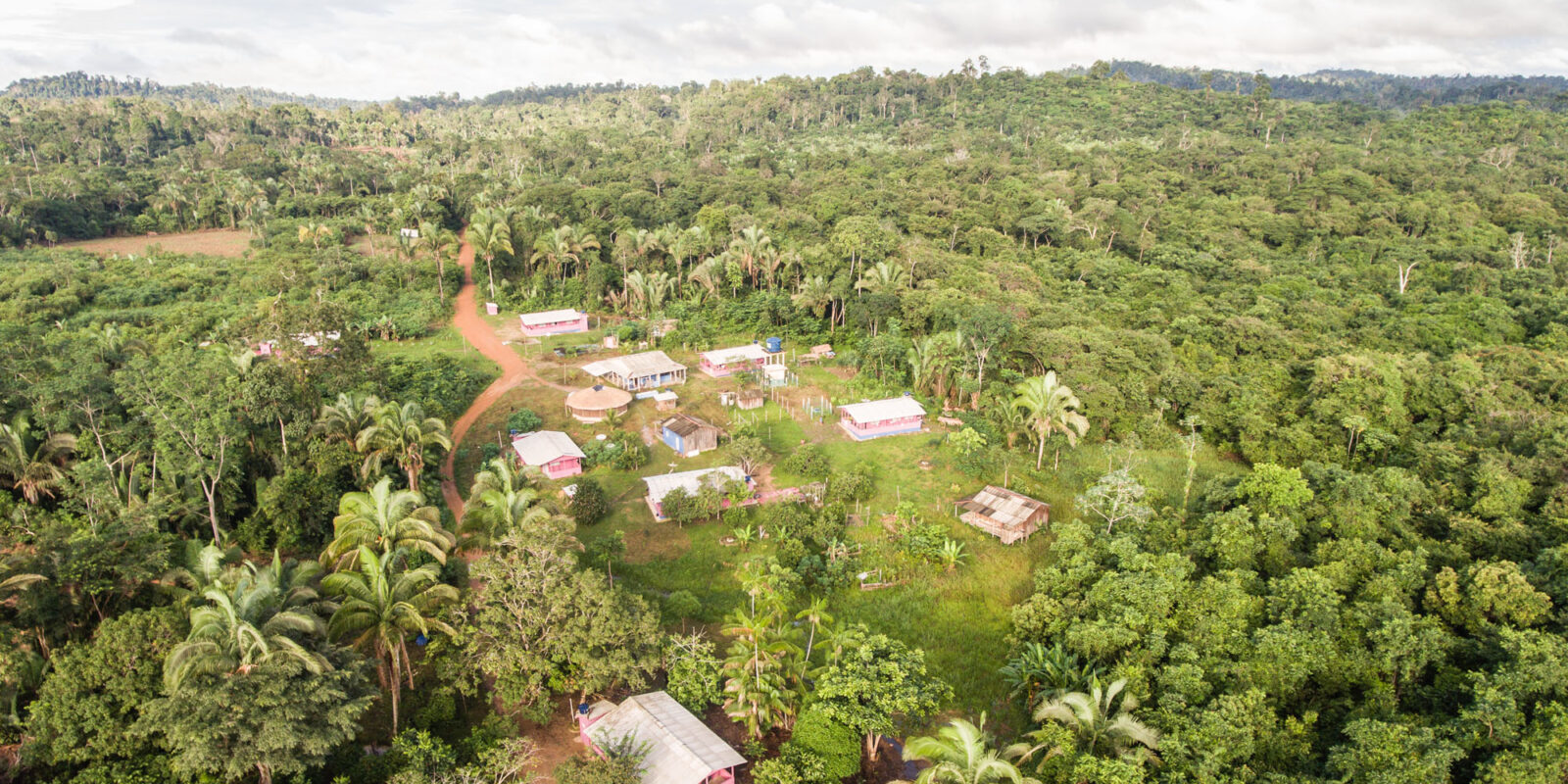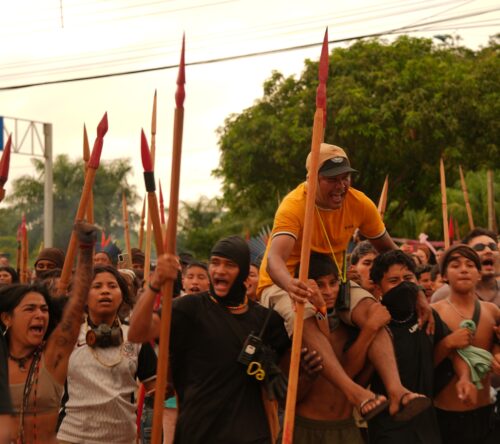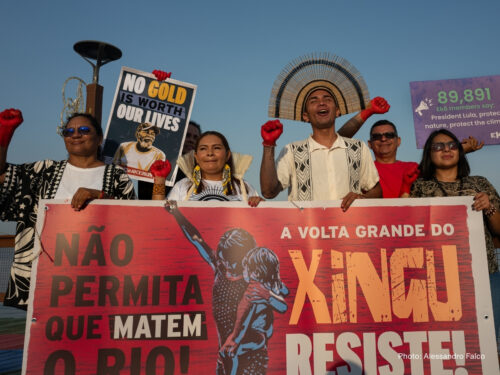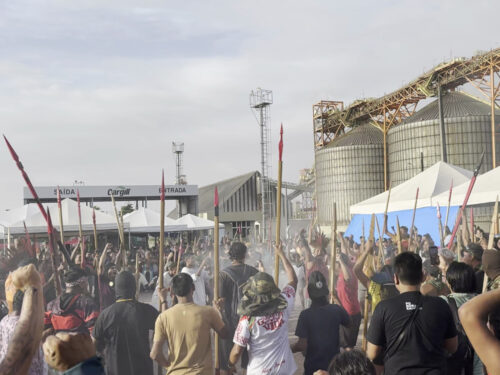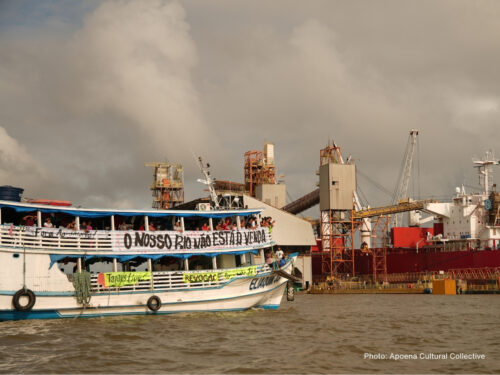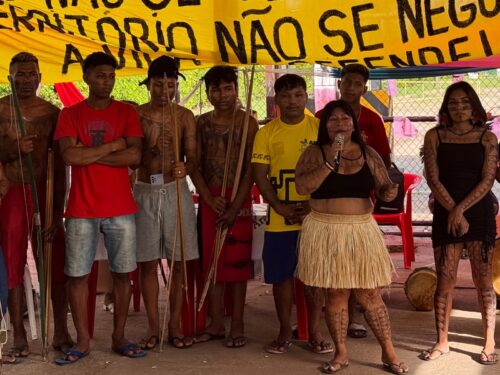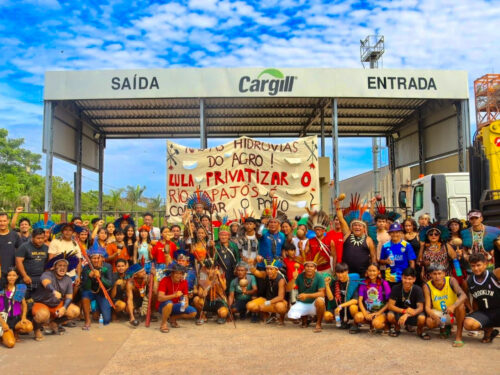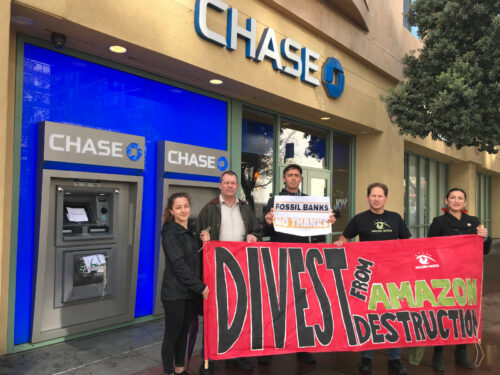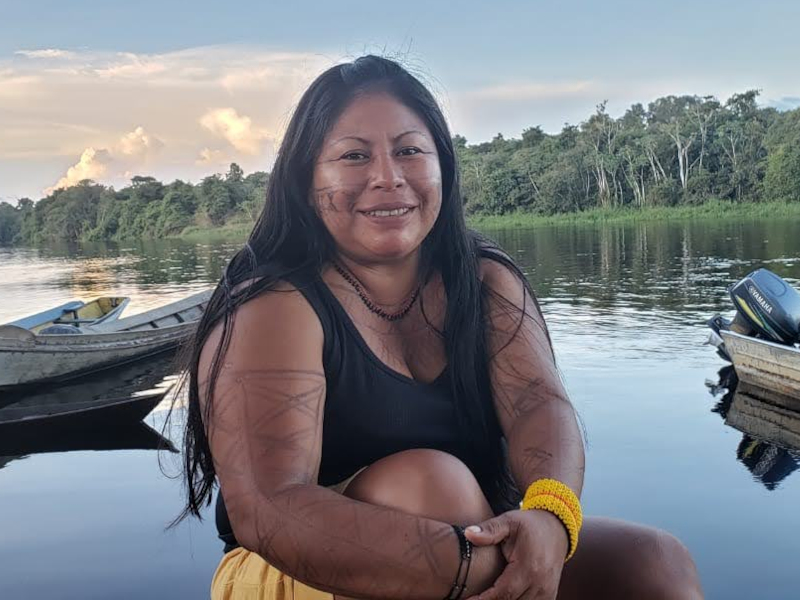
Indigenous land rights are climate justice
Indigenous peoples steward more than 400 million hectares of the Amazon – lands that are scientifically proven to be the best protected from deforestation. Yet, one-third of these territories lack legal recognition, leaving them vulnerable to invasion, exploitation, and environmental destruction.
Amazon Watch works in direct partnership with Indigenous peoples to uphold and advance land rights as a cornerstone of climate justice. We provide legal and technical support, amplify Indigenous voices through media and advocacy, and back community-led resistance to extractive industries, agribusiness, and organized crime. Land rights are not only a matter of justice – they are essential to protecting the Amazon and safeguarding the planet’s future.
Campaign goals
- Legal recognition and protection of Indigenous land rights are secured through titling, demarcation, and territorial governance
- Frontline communities are strengthened to resist destructive forces and assert their rights
- Indigenous demands for land and territorial defense are amplified; their voices are centered in national and global decision making spaces
Recent highlights
- Supporting land demarcation in Brazil: Providing legal and technical assistance to Indigenous partners like the Munduruku people, while amplifying the national Indigenous movement’s demands for full demarcation in the face of hostile political forces.
- Defending land rights and FPIC in Ecuador: Although Ecuador’s constitution recognizes Indigenous land rights, the state claims subsurface oil and mineral rights. We are supporting Indigenous nations such as the Shuar Arutam People in asserting their right to free, prior, and informed consent (FPIC) over extractive projects on their territories.
- Advancing Indigenous autonomy in Peru: Accompanying Indigenous movements pursuing the consolidation of autonomous territorial governments, while advocating for protections for Indigenous Peoples in Isolation and Initial Contact (PIACI).
- Campaigning against disastrous megaprojects: Campaigning against the Ferrogrão, a proposed 933 km railway aimed at increasing grain exports from Mato Grosso State to Amazon River ports. The project, which is strongly opposed by Indigenous peoples, would drive deforestation and accelerate agribusiness expansion across Brazil’s rainforest frontier.
Latest campaign news and updates
‘The river won’: how campaigners in Brazilian Amazon stopped privatisation of waterway
The Guardian | "A victory for life.” That was the triumphal message from Indigenous campaigners in the Brazilian Amazon this week after they staved off a threat to the Tapajós River by occupying a grain terminal operated by Cargill, the biggest privately owned company in the United States.
Brazil Court Revives Belo Sun’s Controversial Amazon Gold Mine
“We are already suffering the impacts of the Belo Monte dam.. If another project of this scale comes, the Volta Grande will not withstand it.”
Indigenous Resistance Forces Brazil To Revoke Amazon Waterway Decree
“This proves that life – the river – has no price. It cannot be sold, it is not negotiable. That’s why we will never back down.”
From Pandora to the Amazon, Indigenous Leadership Is Protecting Life on Earth
More than a decade after Avatar brought global attention to the destruction of Indigenous lands, Amazon Watch has released a new short video.
Indigenous Leaders Defending the Amazon Take Center Stage in New Amazon Watch Video
New short video narrated by Avatar star Oona Chaplin features director James Cameron, legendary Chief Raoni Metuktire, and Goldman Environmental Prize winner Alessandra Korap Munduruku
Indigenous Protesters Intercept Grain Barge, Escalating Demands to Repeal Decree Privatizing Amazonian Rivers
Today, 400 Indigenous peoples in four boats intercepted a grain barge on the Tapajós River in the city of Santarém (PA).
Indigenous Brazilians Protest Amazon River Dredging for Grain Exports
AFP | Hundreds of Indigenous people have been protesting in northern Brazil for two weeks outside the port terminal of U.S. agribusiness giant Cargill, angered over the dredging and development of Amazonian rivers for grain exports.
Indigenous Protesters Block Cargill Facility in Brazil Over President Lula’s Decree
Associated Press | Hundreds of Indigenous people have been protesting for almost a week at a Cargill facility in Brazil against a decree allowing the federal government to consider private concessions for waterways.
Small Steps Made, Big Leaps Needed: JPMorgan Chase Reveals Policy Shifts
World’s largest fossil financier responds following Indigenous-led bank advocacy against fossil fuel expansion in the Peruvian Amazon
The changes fall far short of what is needed to prevent violations of Indigenous peoples' rights and to halt large scale destruction of critical ecosystems like the Amazon biome.


